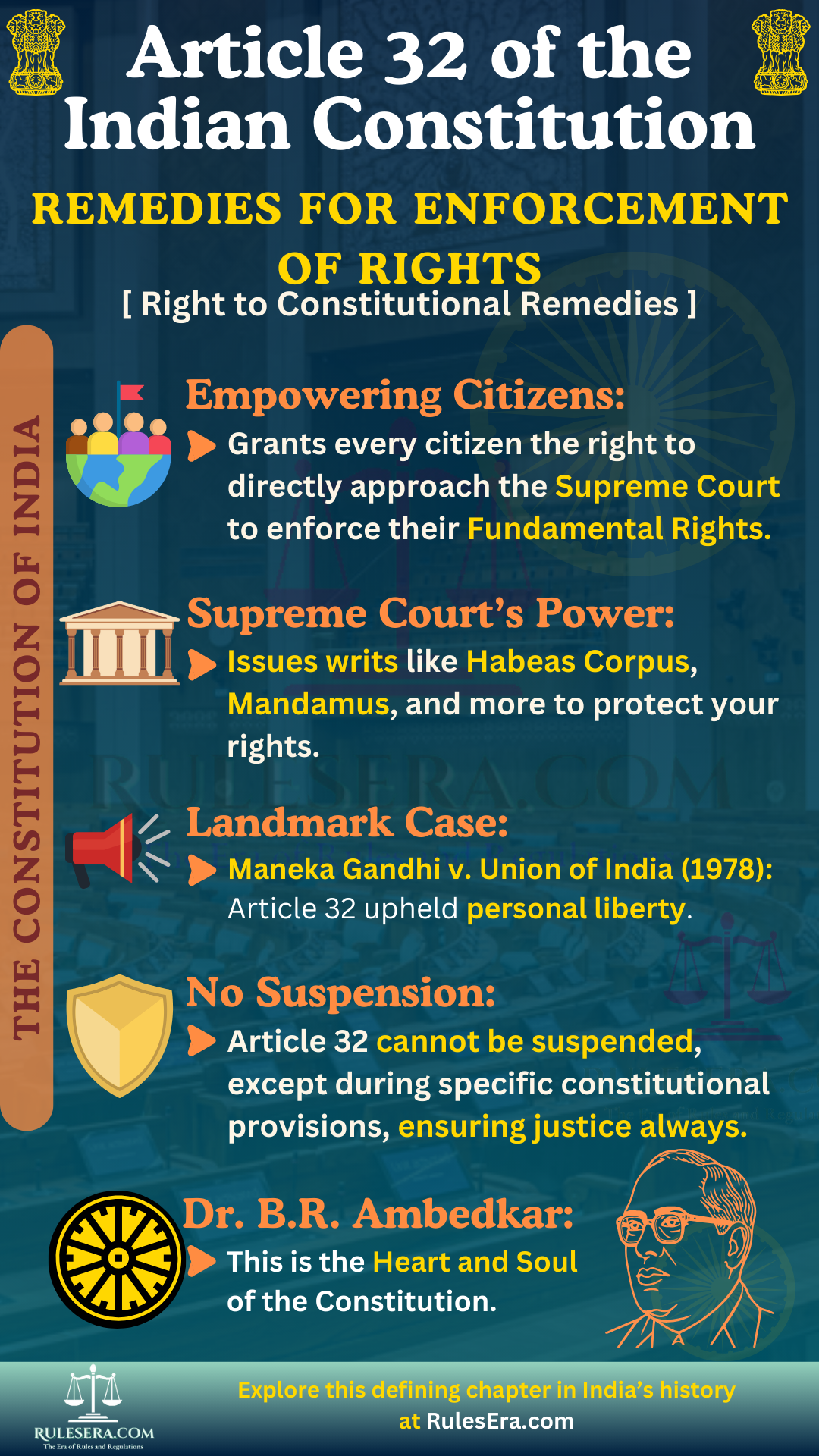Article 32: Remedies for Enforcement of Fundamental Rights:: Right to Constitutional Remedies

(1) The right to move the Supreme Court by appropriate proceedings for the enforcement of the rights conferred by this Part is guaranteed.
(2) The Supreme Court shall have power to issue directions or orders or writs, including writs in the nature of habeas corpus, mandamus, prohibition, quo warranto, and certiorari, whichever may be appropriate, for the enforcement of any of the rights conferred by this Part.
(3) Without prejudice to the powers conferred on the Supreme Court by clauses (1) and (2), Parliament may by law empower any other court to exercise within the local limits of its jurisdiction all or any of the powers exercisable by the Supreme Court under clause (2).
(4) The right guaranteed by this article shall not be suspended except as otherwise provided for by this Constitution.
Explanation
Article 32 empowers citizens to directly approach the Supreme Court for protection of their fundamental rights. The Court may issue writs like habeas corpus, mandamus, prohibition, quo warranto, and certiorari to enforce these rights.
Key Aspects of Article 32
- Direct Access to Supreme Court: Ensures citizens can approach the Supreme Court without needing to go through lower courts first.
- Issuance of Writs: Allows the Court to issue writs to enforce fundamental rights, offering diverse remedies for different violations.
- Empowering Local Courts: Parliament may enable other courts to exercise these powers, making it easier to enforce rights regionally.
- Safeguards Against Suspension: The right is generally protected from suspension, except during specific emergencies as outlined in the Constitution.
Real-Life Applications
In cases like *Maneka Gandhi v. Union of India*, the Supreme Court exercised its powers under Article 32 to ensure the protection of fundamental rights, underscoring its role as the "protector and guarantor" of these rights.
Frequently Asked Questions (FAQs):
Article 32 allows citizens to directly approach the Supreme Court to seek remedies for the violation of fundamental rights, making it essential for upholding constitutional freedoms.
The Supreme Court can issue writs like habeas corpus, mandamus, prohibition, quo warranto, and certiorari to protect citizens' fundamental rights.